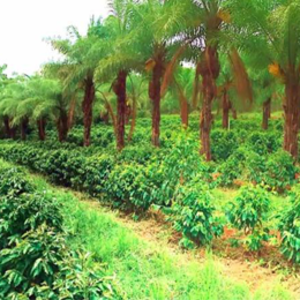UK, German partners demo macaúba biofuel supply chain in Brazil

Photo: Universidade Federal de Viçosa
August 6, 2020
BY Ron Kotrba
U.K.-based biodiesel technology and equipment supplier Green Fuels and Germany-based innovative oil and carbon solutions provider INOCAS GmbH are working together to develop a sustainable fuels value chain in Minas Gerais, Brazil.
As signatories of the Zona da Mata Biokerosene and Renewables Platform—an integrated biofuels and reforestation value chain promoted by the city of Juiz de Fora—the companies are using macaúba, a native palm tree to Brazil, the Caribbean and southern Florida, in novel intercropping and agrosilvopastoral techniques to ensure future sustainable fuel production for distributed energy and land, marine and air transport sectors.
Advertisement
With the support of the U.K. government’s Prosperity Fund, Green Fuels is establishing a biofuel production plant in the Zona da Mata.
Under the new agreement, INOCAS will be provided saplings of macaúba and other native species to establish technical demonstration units in the Zona da Mata and Cerrado (savanna) biomes. The saplings will be acquired from the Viveiro Nativo nursery. Green Fuels and INOCAS expect the program to directly benefit approximately 100 small family farmers and the entire rural value chain.
Advertisement
According to INOCAS CEO Johannes Zimple, macaúba averages four times more oil per hectare compared to other oilseeds. He added that macaúba also generates more jobs and can be produced in concert with other crops or in silvopastoral regimes, and that the crop adapts “to any producer,” from family farms to large agribusinesses, “reducing the effects of rural exodus,” Zimple said. “[It] can be produced in a great diversity of soil and climate [and] it has the capacity of generating more sustainable income.”
Green Fuels stated that this will be achieved “through practical measurement of parameters such as [United Nations Sustainable Development Group] compliance, biodiversity, effect of land use change and productivity to promote recovery of degraded pasture through sustainable land use, combined with environmentally sensitive reforestation, supporting the replenishment of the region’s aquifers and river basins.”
Manuel Luis M. Thompson-Flôres, CEO of Green Fuels Ventures América Latina, said, “Green Fuels will use these technical demonstration units to inform Brazilian and international stakeholders as to the macaúba production model’s sustainability, and to differentiate it from unsustainable oil crops.”
Related Stories
Calumet Inc. on Aug. 8 confirmed its Montana Renewables biorefinery is currently running at full capacity. An initial phase of the company’s MaxSAF initiative remains on track to boost SAF capacity to up to 150 MMgy by mid-2026.
The USDA maintained its outlook for 2025-’26 soybean oil use in biofuel production in its latest World Agricultural Supply and Demand Estimates report, released Aug. 12. The forecast for soybean oil prices was also unchanged.
U.S. soybean production for 2025 is forecast at 4.29 billion bushels, down 2% when compared to last year, according to the USDA National Agricultural Statistics Service’s latest monthly Crop Production report, released Aug. 12.
Marathon Petroleum Corp. on Aug. 5 released second quarter financial results, reporting improved EBITDA for its renewable diesel segment. The company primarily attributed the improvement to increased utilization and higher margins.
Chevron Corp. on Aug. 1 confirmed the company started production at the Geismar renewable diesel plant in Louisiana during the second quarter after completing work to expand plant capacity from 7,000 to 22,000 barrels per day.
Upcoming Events










